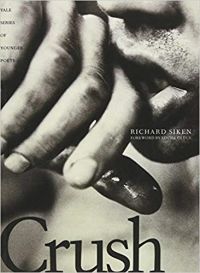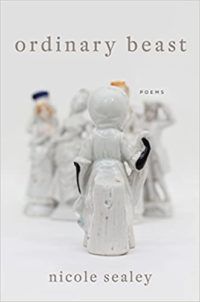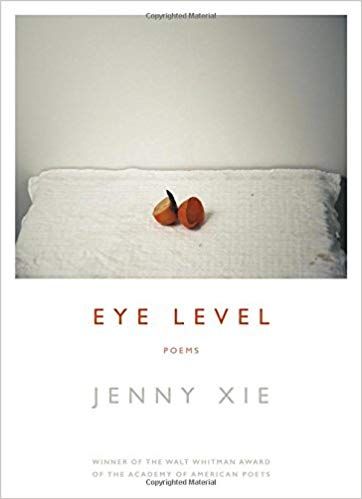As an aspiring poet, Siken’s debut collection, Crush, cemented my dedication to the genre. In a chain restaurant, I, while waiting to hear from MFA programs, hid the compact title behind my server book in my apron pocket and convinced coworkers to read my dog-eared copy. My excitement brought me a lot of That’s pretty and You really love this stuff. Months later, in grad school, my eyes focused on beige ceiling tiles, I recited Crush’s opening poem. That feels so long ago now, but I test myself. After one glance, there it is, swimming under my skin, flowing out of my mouth. Somehow, it stuck. In awe of the words that have traveled from there to here with me, I want more poems as companions. During the pandemic, I decide to use the minutes roping soap on and through my fingers to memorize poetry. I, lover of love and love poems, copy “Object Permanence” from Nicole Sealey’s Ordinary Beast onto scrap paper. On my bathroom mirror, I tape it left of my sightline. While washing dishes, discovering a line’s cadence brings joy. Walking room from room, hearing the words’ heartbeats, space breathing, uplifts me. By focusing on couplet by couplet, my memory succeeds. As weeks spent inside become months, writers who memorize poetry make cameos in my life. Each feels like a serendipitous affirmation from the universe. On VS, a podcast hosted by Franny Choi and Danez Smith from the Poetry Foundation and Postloudness, Paige Lewis speaks to memorizing poetry. The author of Space Struck likes to have poems ready in the moment to share with others, to support a thought, to keep them company in post office lines. In “Shadows and Story: Talking with Jake Skeets” by Kathy Fagan from The Rumpus, Skeets, author of Eyes Bottle Dark with a Mouthful of Flowers, credits the Institute of American Indian Arts with teaching him to hike with his poems. At home, the poet practices this technique, reciting poetry to the land: “From this, I simply learned how to listen to the poems. I learned my poems were not stuck in their form. They moved, they danced, and they sometimes danced off the page.” While sheltering in place, I notice—during the tiny windows of time I spend walking my dog—that nature gifts me lines of poetry. On these strolls, I don’t carry a pen, paper, or my phone, so I repeat the string of words until I reach home. Sometimes I lose them. Sometimes I don’t. Once I recite Sealey’s infamous poem multiple times, “Birth” by Louise Erdrich from Baptism of Desire, which I first read in Salt Lake City, Utah, resurfaces in an email newsletter. After a prose poem keeps eluding me, I memorize Erdrich’s quintain quickly then tape “Inwardly” by Jenny Xie from Eye Level to my mirror. Gazing at the constellation of poems becomes instinctive. If committing poetry to memory interests you, too, I have collected 13 poems for you to befriend, recite to flowers, and whisper into the night:
“Bad Weather” by Cameron Awkward-Rich from Dispatch “Boy Crazy” by Carmen Giménez Smith from Be Recorder “The Clouds Are Buffalo Limping toward Jesus” by Natalie Diaz from When My Brother Was an Aztec “Cross/Bite” by Tiana Clark from I Can’t Talk About the Trees Without the Blood “The Gospel According to Her” by Morgan Parker from There Are More Beautiful Things Than Beyoncé “How to Triumph Like a Girl” by Ada Limón from Bright Dead Things “I Like the Cold” by Xandria Phillips from HULL “Lullaby” by Fatimah Asghar from If They Come for Us “Mercy” by Saeed Jones from Prelude to Bruise “Torso of Air” by Ocean Vuong from Night Sky with Exit Wounds “The Tradition” by Jericho Brown from The Tradition “Untitled” by Joy Harjo from She Had Some Horses “Wild Geese” by Mary Oliver from Dream Work
So, what poems do you carry with you? What new ones will you learn by heart?



